Avoid these foods during pregnancy
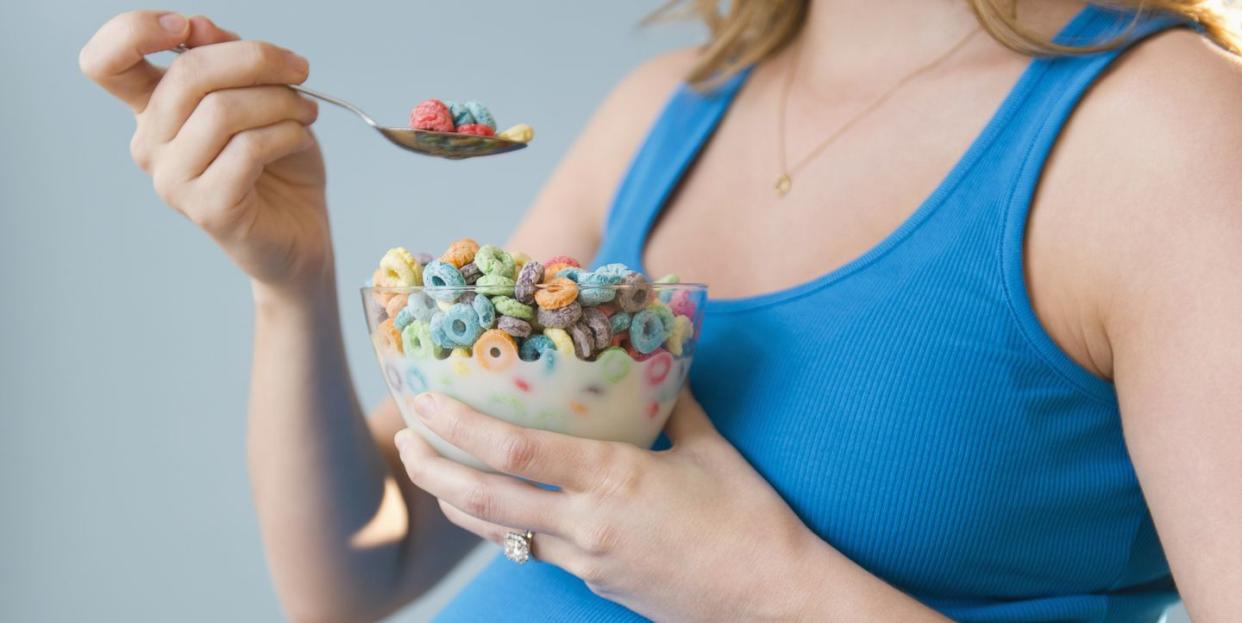
If you have a little one on the way, you'd be forgiven for assuming you can eat whatever you like during your pregnancy. Following a healthy diet is more important than ever when you're expecting. It is reassuring to know that, if you eat a healthy and balanced diet then the vast majority of the foods in our diet aren't likely to harm you or your baby.
However, there are however certain foods that, although you don't have to avoid them, should be eaten in moderation. Try to limit (or eliminate) the following foods from your diet to make sure both mother and baby stay in optimum health:
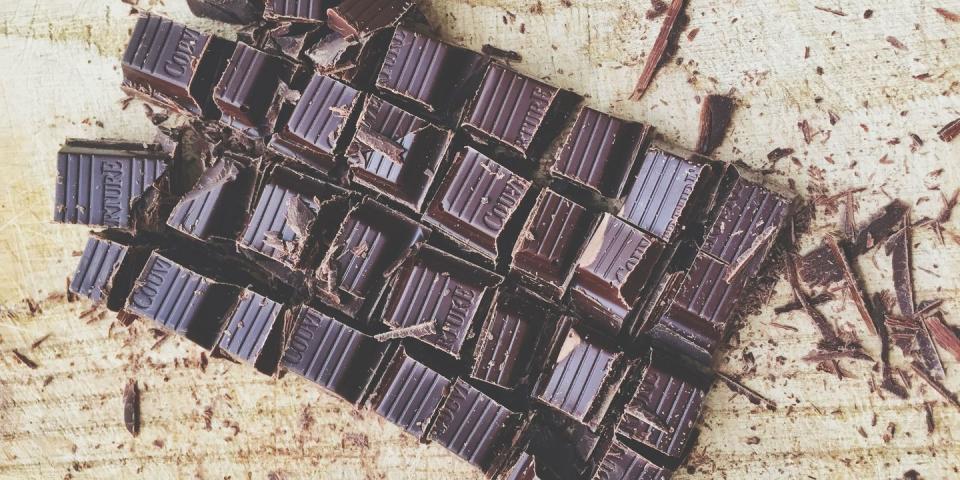
1. Dark chocolate
You may think you're choosing a healthier dessert, but be mindful of how many squares of dark chocolate you reach for if you're expecting. Cocoa beans are packed with caffeine and dark chocolate contains a greater percentage of cocoa solids than milk or white chocolate.
'When you're pregnant, caffeine should be limited,' says Harley Street Dietitian Emer Delaney.
'It crosses into the baby's blood and over consumption can affect its development, for example, resulting in low birth weight. Ideally, you should consume as little as possible but recommendations say you can consume a maximum of 200mg a day.'
What does this mean for your chocolate habit? Examine the overall balance of caffeine in your diet. If you're not consuming any other caffeine, dark chocolate isn't a real problem.
'On average a 40g bar of dark chocolate will have approximately 27mg of caffeine. But as the cocoa percentage increases, so does the caffeine content, for example a 40g bar of 80 per cent can contain over 40mg of caffeine,' says nutritional therapist Alison Cullen.
💡 If you drink a daily coffee (100mg+), tea (75mg), cola (40mg) or even take cold and flu medication (which can contain caffeine), you should clock up how much you're consuming - it may be more than you think.
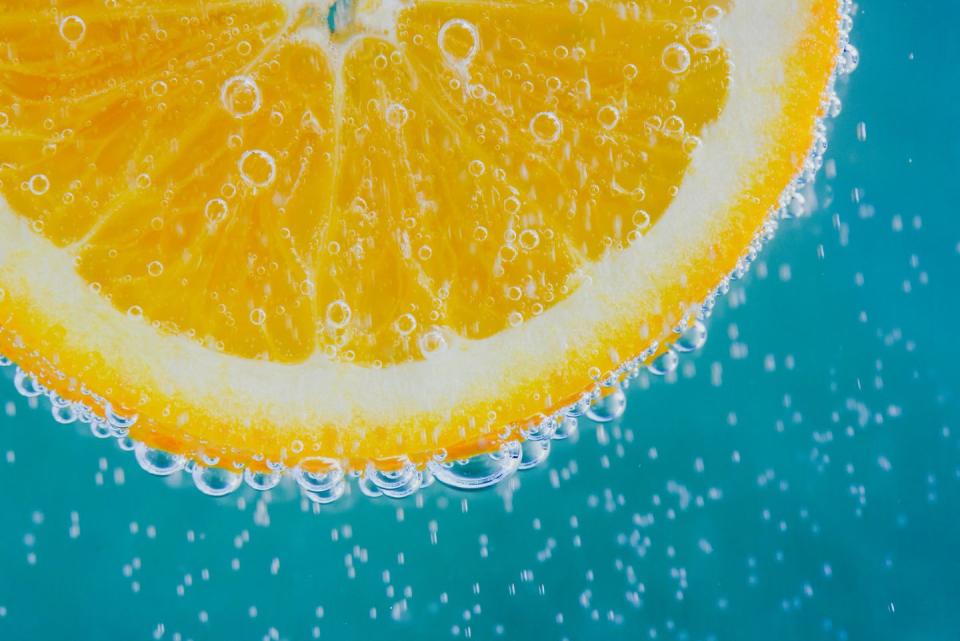
2. Fresh juice
Freshly squeezed juice sounds healthy for you and baby, but experts advise against buying juices from farmers markets and juice bars, as they may not be pasteurised or treated in other ways to reduce harmful bacteria, including salmonella and E.coli.
'Warning labels are not required on these products and so pregnant women should avoid these juices,' says GP Dr Roger Henderson. Opt for supermarket juice or, even better, whole fruit instead.
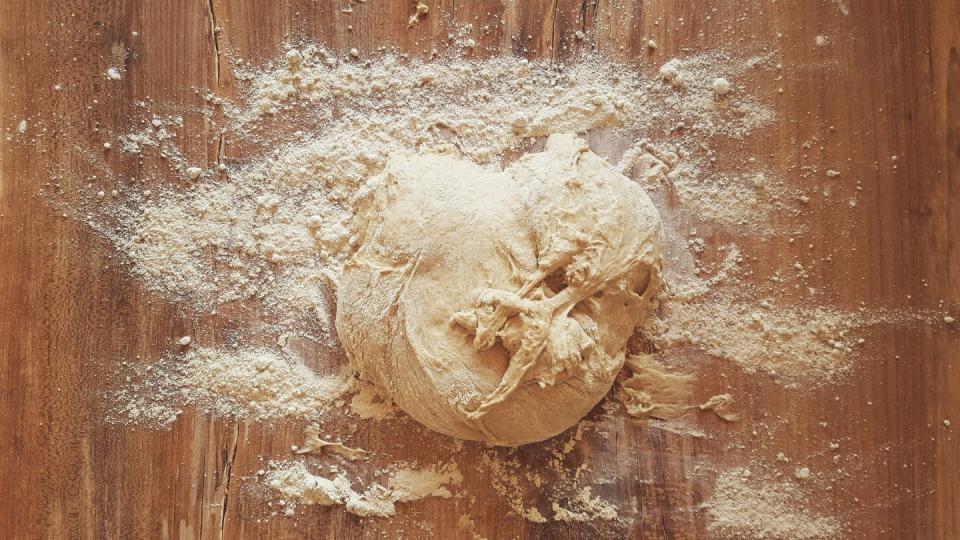
3. Raw baking dough
It's tempting to pick at the cake or cookie dough while you're baking – but the dough contains raw egg, which can contain the salmonella bacterium.
'Salmonella bacterium can cross the placenta and, in some cases, can lead to miscarriage, premature labour, intrauterine death and other neonatal problems,' says Dr Penny Law, Consultant Obstetrician and Gynaecologist.
'Free-range hens can carry it but it is usually found in battery hens. Salmonella is killed by heat, so it's important to cook and reheat these food fully.' Caesar dressing has the same risk. But supermarket bought cookie dough ice cream is fine!

4. Tinned tuna
Tuna is a great source of lean protein, but be careful about how much you eat before and during pregnancy (and while you're breastfeeding). 'One reason is that oily fish, such as tuna, is high in mercury, which is known to affect the baby's brain and nervous system development,' says Emer. 'You need to limit your intake to a maximum of two tins or one fresh tuna steak (140g cooked) a week.'
If you eat any tinned foods during pregnancy, be careful to ensure you finish them well within the recommended "best before" guidelines on the packaging. 'While there's nothing wrong with eating tinned foods, if they are outside of this date, they can harbour bacteria,' says Emer.
'Although this isn't harmful in general, if you're pregnant it's an important precaution. This actually applies to all foods, especially during pregnancy and breastfeeding, as everything you consume will directly impact the health and development of your child.'
As for other fish, avoid swordfish because it contains high levels of Methylmercury, which could affect the nervous system development of your growing baby.

5. Raw sprouts
Avoid any kind of raw sprouts, including alfalfa, clover, and radish. These can contain bacteria such as E. Coli and listeria, which can cause food poisoning and complications during pregnancy. Cooked sprouts are safe to eat however.
'Sprouted seeds and beans are likely to be washed but not cooked, so any bugs like listeria in the water left on the sprouts won't be killed,' says Cullen.
'There was an incidence of contaminated sprouts in Germany a few years ago (due to contaminated water) so they may be seen as more problematic.'
For the same reason, avoid pre-packaged salads or salad bars. These can contain high levels of listeria. While it is rare, experts say the issue is increasing.
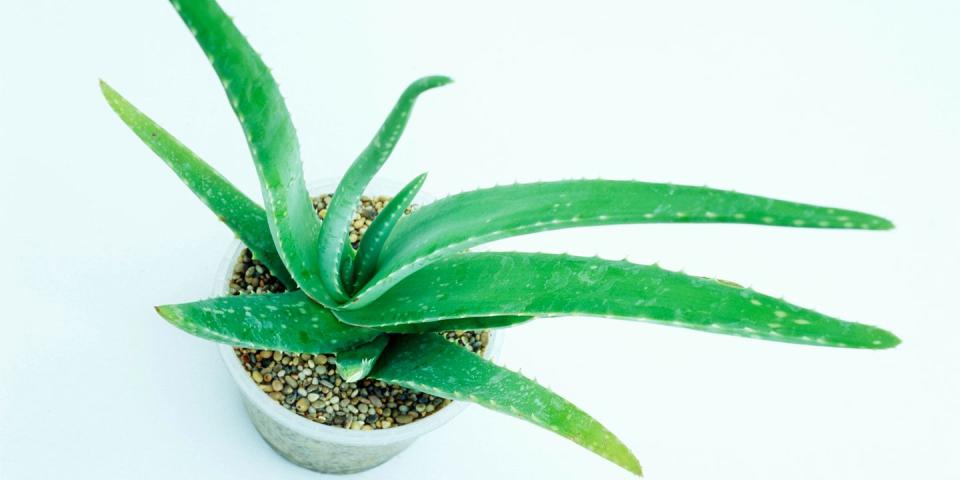
6. Aloe vera
Touted as a health drink that's good for your gut, aloe vera juice is rich in nutrients and fibre. But the downside is that it can also act as a uterine stimulant, which can lead to a woman's uterus to contract.
'Aloes contains anthraquinones, a strong purgative often used as a laxative. Pregnant women should avoid taking (internally) aloe vera products that could contain anthraquinones,' says women's health nutritionist Marilyn Glenville. 'But externally-applied aloe vera gel during pregnancy is not believed to cause concern.'
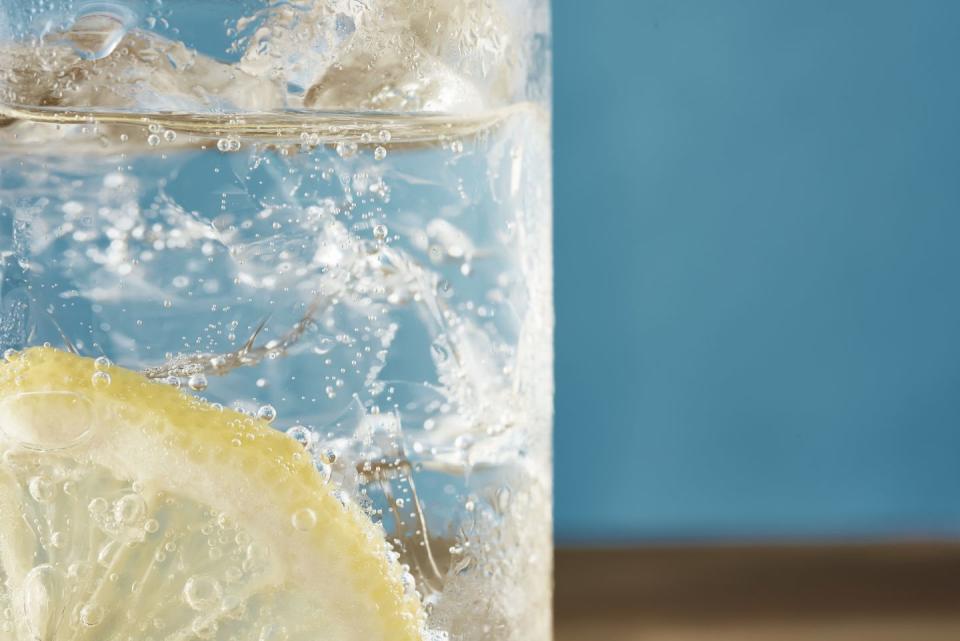
7. Fizzy drinks
Aside from caffeine, excessive sugar and bubbles that lead to uncomfortable bloat, carbonated drinks can also cause pregnancy heartburn.
'I find that clients are often addicted to them, which concerns me – things that are completely healthy don't cause addiction,' says Cullen. 'You never get a headache from cutting out broccoli.'
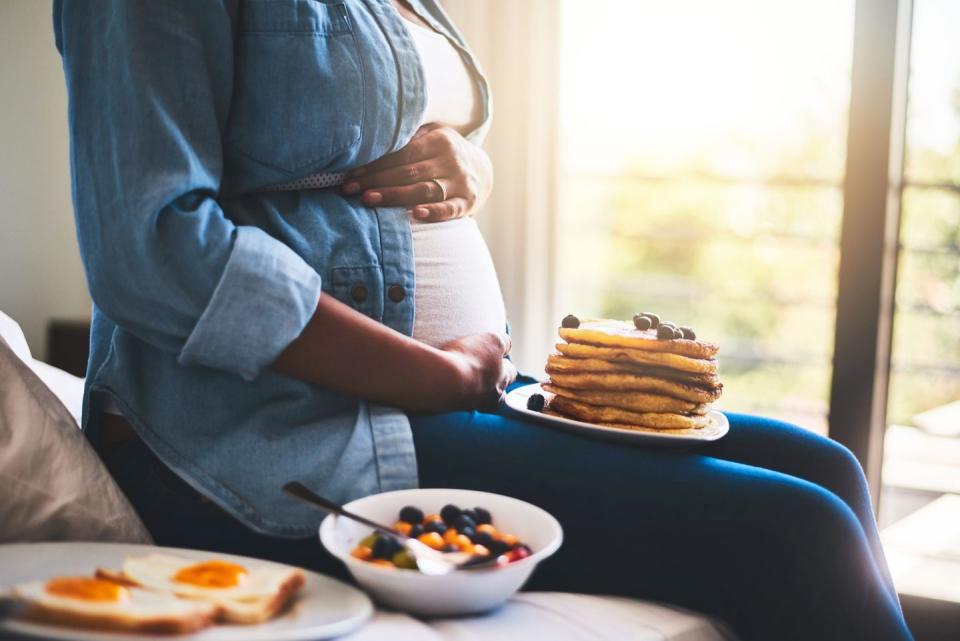
Bonus: big portions
It can sometimes be about what as opposed to how much you eat that causes discomfort. You're more likely to have issues with room in your stomach after meals during pregnancy.
'One of the biggest problems I see in my clinic is heartburn and reflux caused by the stomach being squashed by the growing baby,' says Cullen. 'The solution, or maybe minimisation of the problem as it's only really solved when the baby is born, is to choose nutrient-dense foods such as dried fruit, seeds rather than bulky carbs like white rice, bread and pasta.'
Cullen recommends that after you've just eaten, go on all fours for a few minutes to let your stomach settle. Continuous problems may be relieved by heartburn medications such as Rennie tablets.
Last updated: 30-10-19
You Might Also Like

